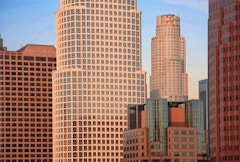
745 results
-

-

2025 FTI Forum: NYC! + Vitruvian Honors & Awards Ceremony
- New York, United States
World Congress by Facade Tectonics Institute, Inc.
-

-
Sustainable simplicity and the future of exterior wall for research and education buildings
- Paper by Carl Knutson · Andrei Koshelev
Today, there is a shift towards sustainable simplicity in facades, embracing material innovations and thermal design strategies for long-term
-

-

-

Support our Mission - Donate Now!
- Event by Facade Tectonics Institute
Support our Mission - Donate Today
-
-

-
-

Event Passed
–Facades+ Los Angeles
- Los Angeles, United States
The Premier Conference for High-Performance Building Enclosures brings the AEC Community together to discuss all things facades, from technical innovations, new materials, and designs that push the envelope. Be inspired by presentations and discussion by world-class architects and engineers.
Industry Event by The Architect's Newspaper
-
North Capitol Building Case Study
- Paper by Jeremy Simmonds, Project Manager at KEPCO+ Bruce Knaphus, President
The Utah State Capitol North Building, currently under construction, features 80,000 SF of classically designed cubic granite detailing, including… -
New Course on Building Façade Design Developed at Oklahoma State University
- Paper by Bodhisatta Hajra, Assistant Professor of Architectural Engineering John Phillips, PE,
A façade, which is also called a ‘secondary structural system’, typically separates the exterior from the interior of a building. In recent times,… -
-

RAiNA Conference 2024: Creating Buildings that Endure
- Event by RAiNA
Join industry leaders to explore the vital role of rainscreens in construction and discover pioneering ideas and projects. With cutting-edge presentations, expert speakers, and a focus on current industry trends, this conference will provide you with the knowledge to stay ahead in your field.
-

FTI LA-hub: CircuClarity!
- Event by Facade Tectonics Institute, Gensler
Our upcoming FTI Student Forum explores the intersection of Facades, Carbon, and Circularity. In a fast paced spitfire format, architecture students present their recent work and research.
-

World Congress 2024 News: Technoform elevates to platinum sponsorship!
- Article by Val Block, Consultant to FTI
-
In pursuit of nothing: Leveraging the facade system for net-zero-carbon
- Article by Rodrigo Borghino, Partner
-

-

FTI LA-hub: DTLA Facades Walk!
- Event by Facade Tectonics Institute, McCarthy Building Companies
Our upcoming FTI Student Forum explores the intersection of Facades, Carbon, and Circularity. In a fast paced spitfire format, architecture students present their recent work and research.